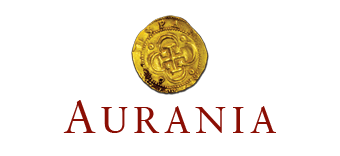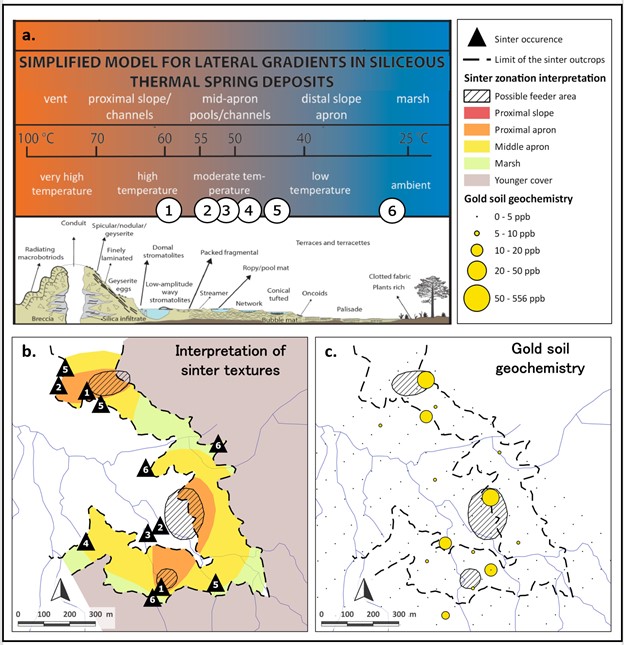Toronto, Ontario, August 25, 2021 – Aurania Resources Ltd. (TSXV: ARU) (OTCQB: AUIAF) (Frankfurt: 20Q) (“Aurania” or the “Company”) reports that a new epithermal target with associated gold enrichment in soil over an area of 0.67 square kilometres, has been identified near the Kuri-Yawi target in the Company’s Lost Cities – Cutucu Project area (“Project”) in southeastern Ecuador.
Sinter blocks and outcrops were found in an area approximately 1 kilometre long at Latorre C target (see Press Release dated February 28, 2018) situated immediately north of the Kuri-Yawi targets. Soil sampling returned gold values up to 0.56 grams per tonne (“g/t”) in close proximity to the Latorre C sinters. MobileMT geophysical data show that a conductive area is located beneath the sinter area – the conductive area could be due to sulphides in an epithermal system.
Aurania’s Chairman & CEO, Dr. Keith Barron commented, “Our epithermal exploration team has identified a new target while the other teams have been driving our drilling programs in the Tsenken and Tiria-Shimpia areas. The enrichment of gold in soil is up to 0.56 g/t, which is of considerable significance in soil. The target therefore is epithermal gold below the sinter – which would have been a Yellowstone-like silica platform around geyser systems at the time of gold deposition approximately 170 million years ago. We believe that this Latorre C target forms part of the same epithermal system as Kuri-Yawi where other relicts of sinter terraces have been found.”
Reconstruction of Sinter Platforms at Latorre C
In exploration for epithermal gold-silver in an area dominated by silica terraces, and where the target mineralization is “blind” and covered, the goal is to find the actual geyser conduit where boiling water or steam would have escaped to the surface. This is the plumbing system which would have transitioned downward to open fractures, which over time would be filled in by minerals to form veins.
The hottest part of the system, where the vent is located, is too hostile environment for life, other than bacteria, to thrive. The hot water that is ejected can travel considerable distances downslope away from the vent, supporting more diverse life-forms and depositing silica as it cools. Silica-encrusted bacterial formations, algal mats and reed or bullrush impressions in silica will indicate where you are in relation to the vent. A close examination of the sinter fossils allows one to vector into the geyser vent, which can be a drill target.
Silica-encrusted, fossilized features have been used to partially reconstruct the sinter platforms to identify the likely position of buried silica veins at Latorre C as shown in Figure 1b. Three core areas have been identified. These targets are prioritized on the basis of support from other datasets, including soil geochemistry and MobileMT geophysics, as discussed below.
Figure 1. Interpretation of sinter in the Latorre C area.
a.) Simplified model profile through a sinter system showing the location of the different siliceous features in a hot spring deposit system (from Hamilton et al., 2019).
b.) Interpretation of sinter features in the Kuri-Yawi target area: 1. Domal stromatolite; 2. Packed fragmental; 3. Streamer; 4. Ropy pool mat; 5. Conical tuff; 6. Clotted fabric with plant stems and roots.
c.) Gold in soil relative to the sinters
Soil Geochemistry and Geophysics Data from the Sinter area
MobileMT data show a weakly conductive zone lying beneath the sinter area (Figure 1b) that could be due to limited sulphide content typical of low sulphidation epithermal systems. Soil samples taken from a soil grid returned gold values up to 0.56g/t in the vicinity of the sinter centres (Figure 1c).
Sample Analysis & Quality Assurance / Quality Control (“QAQC”)
Laboratories: The samples were prepared for analysis at MS Analytical (“MSA”) in Cuenca, Ecuador, and the analyses were done in Vancouver, Canada.
Sample preparation: Soil samples consisted of approximately one kilogram of clay from the iron-rich “B” horizon at each sample point. The soil samples were dried and subsequently screened through 80 mesh (using screens with apertures of approximately 0.18 millimetres). A 250 gram (“g”) split of the material that passed through 80 mesh was pulverized to 85% passing 0.075mm and was packaged for shipment to the analytical facility.
Analytical procedure: A 0.5g split of the -0.075mm fraction of soil samples underwent digestion with aqua regia, and the liquid was analyzed for 48 elements by ICP-MS. Apart from being analyzed by ICP-MS, gold was also analyzed by fire assay with an ICP-AES finish.
QAQC: Aurania personnel inserted a certified standard pulp sample, alternating with a field blank, at approximate 20 sample intervals in all sample batches. Aurania’s analysis of results from its independent QAQC samples showed the batches reported on above, lie within acceptable limits. In addition, the labs reported that the analyses had passed their internal QAQC tests.
Qualified Person
The geological information contained in this news release has been verified and approved by Jean-Paul Pallier, MSc. Mr. Pallier is a designated EurGeol by the European Federation of Geologists and a Qualified Person as defined by National Instrument 43-101, Standards of Disclosure for Mineral Projects of the Canadian Securities Administrators.
About Aurania
Aurania is a mineral exploration company engaged in the identification, evaluation, acquisition and exploration of mineral property interests, with a focus on precious metals and copper in South America. Its flagship asset, The Lost Cities – Cutucu Project, is located in the Jurassic Metallogenic Belt in the eastern foothills of the Andes mountain range of southeastern Ecuador.
Information on Aurania and technical reports are available at www.aurania.com and www.sedar.com, as well as on Facebook at https://www.facebook.com/auranialtd/, Twitter at https://twitter.com/auranialtd, and LinkedIn at https://www.linkedin.com/company/aurania-resources-ltd-.
For further information, please contact:
| Carolyn Muir
VP Investor Relations Aurania Resources Ltd. (416) 367-3200 |
Dr. Richard Spencer
President Aurania Resources Ltd. (416) 367-3200 |
Neither the TSX Venture Exchange nor its Regulation Services Provider (as that term is defined in the policies of the TSX Venture Exchange) accepts responsibility for the adequacy or accuracy of this release.
Forward-Looking Statements
This news release may contain forward-looking information that involves substantial known and unknown risks and uncertainties, most of which are beyond the control of Aurania. Forward-looking statements include estimates and statements that describe Aurania’s future plans, objectives or goals, including words to the effect that Aurania or its management expects a stated condition or result to occur. Forward-looking statements may be identified by such terms as “believes”, “anticipates”, “expects”, “estimates”, “may”, “could”, “would”, “will”, or “plan”. Since forward-looking statements are based on assumptions and address future events and conditions, by their very nature they involve inherent risks and uncertainties. Although these statements are based on information currently available to Aurania, Aurania provides no assurance that actual results will meet management’s expectations. Risks, uncertainties and other factors involved with forward-looking information could cause actual events, results, performance, prospects and opportunities to differ materially from those expressed or implied by such forward-looking information. Forward looking information in this news release includes, but is not limited to Aurania’s objectives, goals or future plans, statements, exploration results, potential mineralization, the corporation’s portfolio, treasury, management team and enhanced capital markets profile, the estimation of mineral resources, exploration, timing of the commencement of operations and estimates of market conditions. Factors that could cause actual results to differ materially from such forward-looking information include, but are not limited to, failure to identify mineral resources, failure to convert estimated mineral resources to reserves, the inability to complete a feasibility study which recommends a production decision, the preliminary nature of metallurgical test results, delays in obtaining or failures to obtain required governmental, regulatory, environmental or other project approvals, political risks, inability to fulfill the duty to accommodate indigenous peoples, uncertainties relating to the availability and costs of financing needed in the future, changes in equity markets, inflation, changes in exchange rates, fluctuations in commodity prices, delays in the development of projects, capital and operating costs varying significantly from estimates and the other risks involved in the mineral exploration and development industry, the effects of COVID-19 on the business of the Company including but not limited to the effects of COVID-19 on the price of commodities, capital market conditions, restrictions on labour and international travel and supply chains, and those risks set out in Aurania’s public documents filed on SEDAR. Although Aurania believes that the assumptions and factors used in preparing the forward-looking information in this news release are reasonable, undue reliance should not be placed on such information, which only applies as of the date of this news release, and no assurance can be given that such events will occur in the disclosed time frames or at all. Aurania disclaims any intention or obligation to update or revise any forward-looking information, whether as a result of new information, future events or otherwise, other than as required by law.





